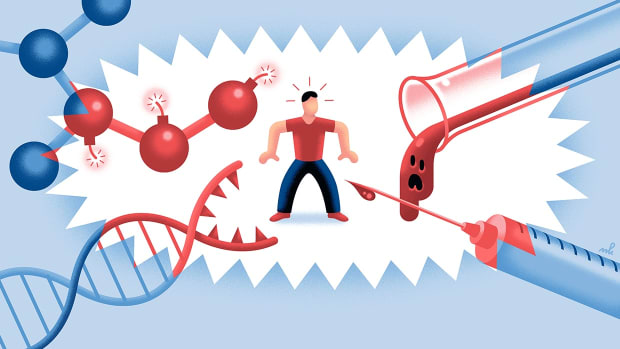
Faith in science? Strongly in neuroscientists, less so in political scientists
People trust neuroscientists and virologists more than economists and political scientists, research by UvA psychologists shows. Nor do meteorologists and food scientists score as high. “A weather forecast is of course difficult to make and not so reliable in the long run.”
UvA psychologists published the results of the study in the journal PLOS ONE. How can the differences between scientists be explained? Folia asked PhD student and lead author Vukašin Gligorić.
Confidence in science varies among scientists. Surely not a surprise?
“No, but it had not been shown before. Most research on trust in science lumps all scientists together while people do distinguish between scientists. For example, people think that neuroscientists are more competent than sociologists and that naval biologists are more warm-hearted and have more integrity than other scientists. We wanted to examine whether these differences also applied to trust. In the study, we distinguished 45 types of scientists and asked nearly 3,000 Americans to indicate their trust for each type of scientist on a scale of 1 to 7.”
Epidemiologists, virologists, medical researchers, immunologists, environmental and data scientists scored high, while economists and political scientists scored low on trust. How can you explain that?
“Perhaps it is good to tell you first that the differences in trust between scientists are not that great and that all scientists scored quite high. The degree of trust also differs more by participant than by scientist. Participants who had little trust in one type of scientist also had less trust in other types.”
“What stood out was that political scientists and economists could count on the least trust. That probably has to do with stereotypes about researchers and political ideology. I think people are generally unhappy with the current political and economic system, and that doesn’t contribute to trust either.”

How did corona affect trust in science?
“That varied by country. In some countries such as the United States, France, and Italy, trust in scientists decreased, while in other countries it increased. I think that’s related to how the government handled input from scientists. But no drastic changes were seen. During covid, researchers were both revered as heroes and seen as targets of death threats. However, it could be the case that virologists and medical researchers came out slightly more positive in this 2022 study because corona was still fresh on their minds.”
In addition, trust in meteorologists and food scientists is also lower than average, the survey found.
“That’s speculation, but weather forecasting, of course, is hard to do and not that reliable over the long term. And for food scientists, it could have to do with genetically modified foods (GMOs), the least trusted area of science. People have strong opinions about that.”
What are important predictors of trust?
“We looked at four traits that are important for how people view other groups. Competence (intelligence and skill), assertiveness (perseverance), morality (honesty, integrity), and warmth (friendly, extroverted). Do you trust scientists because they are honest? Or smart? Or have integrity? We found that morality was the most important predictor, followed by competence.”
And does that vary by scientist as well?
“Yes, morality is particularly important for scientists working on polarized topics like climate change and corona. The public trusts climate scientists and virologists only when they appear honest and with integrity. For archaeologists, morality plays a much smaller role as a predictor of trust.”
What can a scientist do to appear moral?
“People distrust researchers who work in commercial companies or own their own businesses. Research also shows that conflicts of interest produce less reliable research results. Climate activism can actually help raise morality when researchers speak out against companies that pollute. More generally, if you are a scientist fighting capitalist structures you are seen as more moral, although this also depends on the political affiliation of the participants. For example, conservatives have less confidence in researchers than progressives.”
So what can we do with these results?
“I think research gives more insight into trust in science and provides scientists with tools to gain more public support and appear more trustworthy. Ultimately, we need trust in science to put scientists in a position to solve societal problems.”


